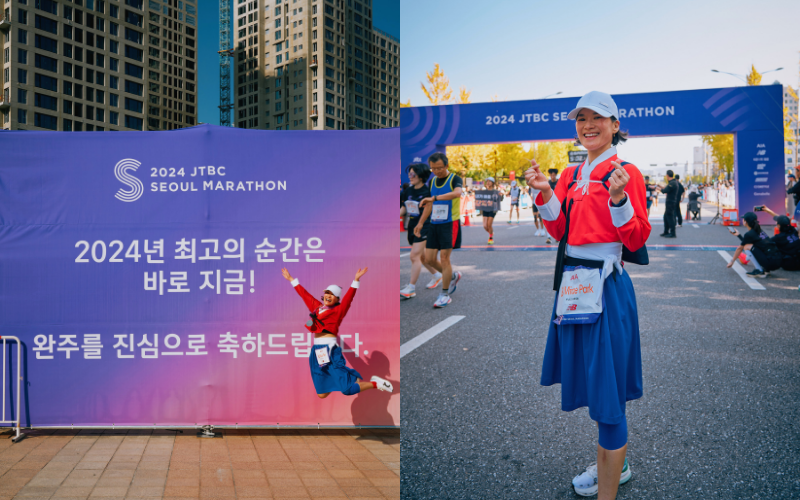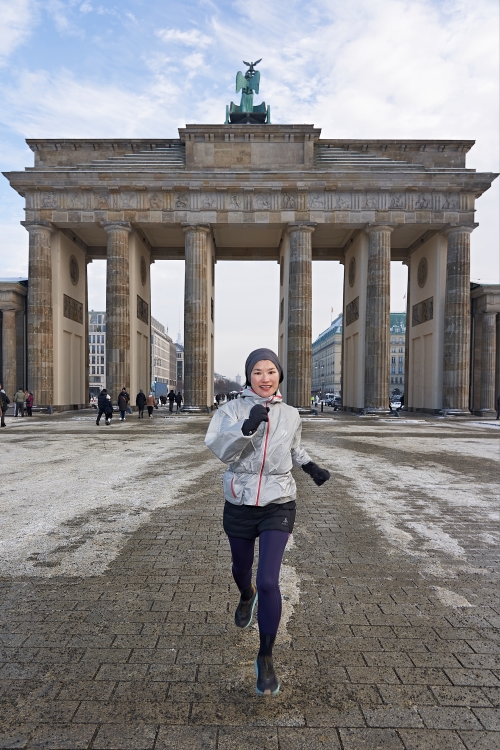Mirae kh Rhee is an artist, researcher, writer, and speaker, as well as an Overseas Adopted Korean (OAK) who was sent to the United States through transnational adoption without her birth parents' legal consent. Her Korean adoption records provide no clear answers, as the agency failed to obtain the required written consent from her biological parents. As a result, Mirae has spent her life grappling with uncertainty about her origins and the circumstances surrounding her birth. Like many others seeking the truth, she questions whether she may have been taken from her parents without their knowledge. For nearly three decades, she has been searching for her Korean family, despite being led to believe her adoption was the result of legal abandonment.
Through her art and public engagements, Mirae advocates for the rights of transnational adoptees, emphasizing the importance of understanding one's roots and family medical history as fundamental human rights. Following the successful completion of the JTBC Seoul Marathon on Nov 3, 2024, she will continue her project “Run Towards My Family” by running in the 14 countries around the world where the majority of overseas adopted Koreans were sent like the US, Norway, Sweden, the UK, Australia, etc.
This aims to raise awareness of various challenges faced by adopted Koreans in both their adoptive countries and when returning to the motherland, including racial prejudice where they grew up and “orphan/adoptee status” discrimination when returning to Korea. Mirae brings a deeply personal perspective to each run, highlighting the endurance and resilience required for those on a journey of self-discovery. By participating in marathons globally, she symbolically retraces the paths of Korean adoptees scattered worldwide. Each run serves as a public art performance and a social statement, amplifying the collective voice of adoptees and advocating for systemic support in family search and heritage rights.
In 2022, Mirae received the Korea Arts Foundation of America (KAFA) Award, becoming the first adopted Korean American artist to earn this distinction.
She has also taken part in exhibitions including ‘’Missing Merope’’ at the KCC in Los Angeles (2023), ‘’Sammel-Sucht/Collecting Crave’’ at the Museum für Asiatische Kunst in Berlin (2022-2023), and ‘’Mourning Becomes Electra’’ at the Warehouse Gallery in Incheon, Korea (2019).
She recently gave lectures and presentations at the University of Chicago's Art History Department, the Graduate Center of CUNY in collaboration with Sarah Lawrence College, and the Korean Embassy in Berlin.
Her journey as an artist and an adoptee uniquely combines personal struggle with creative expression. Her ability to transform her experiences into impactful art and advocacy is thought-provoking.
The following are excerpts from an email interview with her between Dec 1 and Jan 14.
1. What led you to create your personal project "Run Towards My Family"?
I am trained as a performance artist and initially conceptualized ‘’Run Towards My Family’’ as a combination of personal birth family search and endurance performance. Later, I realized that my project could be about more than one person’s destiny. It could represent the fate of those adopted abroad, who were not orphans but were forcibly separated from 200,000+ Korean families. If we consider that each who was adopted abroad had a mother and a father, that is a minimum of 600,000 Koreans that have been affected by transnational adoption, not to mention our siblings, grandparents, uncles, aunts, and cousins. In addition, some of us have children, the descendants of adoptees, who are affected, too. They also live with the legacy of forced separation from their Korean ethnic root.
Furthermore, I was inspired by the acts of resistance of the athlete Sohn Kee Chung/Son Gi Jeong to be recognized as a Korean, when he won the 1936 Marathon, as part of the Berlin Olympics. Sohn Kee Chung/Son Gi Jeong was forced to represent the Japanese empire, but every time he got the chance, he attempted to emphasize his Korean identity. His win was meaningful to Korea’s independence movement and brought worldwide recognition to Korean identity in the face of Japanese imperialism.
I’m an exiled Korean, living in Berlin now, and will run the first marathon after my Seoul debut, here in Berlin 89 years after Sohn Kee Chung/Son Gi Jeong’s win. Like this freedom fighter, I want to contribute to healing the Korean nation from the egregious crimes committed against Korean families by the corrupt transnational adoption industry and its collaborators.
2. What makes this project remarkable?
What makes ‘’Run Towards My Family’’ remarkable is that it turns something deeply personal; my own story as an overseas adopted Korean into a collective exploration of identity, belonging, and resilience. It’s not just a running project, it’s a cultural statement about identity, belonging, and reclamation. It’s a way of reclaiming cultural roots, breaking colonial narratives around adoption, and reconnecting with communities worldwide who share similar histories of displacement and loss. It’s also remarkable because it transforms the marathon, a grueling physical endurance test into a symbolic journey of healing.

3. What motivated you to run in the JTBC Seoul Marathon?
The decision to run the JTBC Seoul Marathon in 2024 was not accidental; it was deeply symbolic for me. I saw running the marathon as a kind of cyclical journey, a rebirth. The months of training for this race mirror the gestation period in my mother’s womb, where I prepared physically and emotionally for this moment. Crossing the finish line wasn’t just the end of a race; it felt like a symbolic birth into the world. But beyond the personal symbolism, there’s also the cultural context of the Lunar calendar: 2024 was the year of the Dragon, which carries significant meaning in East Asian tradition, and I’m a dragon. Above all, the JTBC Seoul Marathon was just the beginning of what has now become a 12-year journey. Initially, I planned to run 14 marathons within a decade in the main 14 receiving countries, but I’ve since extended the project to make the final marathon even more significant. The last marathon will be in Seoul in 2036 during the next Dragon Year; 100 years after Sohn Kee Chung/Son Gi Jeong’s win, and marking 12 years since this project began.
That final marathon will also coincide with my 60th year, which in Korean tradition is called Hwangap. In East Asian culture, the Hwangap (one's sixtieth birthday) symbolizes the completion of a full life cycle and the beginning of a new one. It’s a deeply meaningful milestone that celebrates rebirth, transformation, and longevity. I hope in this time I can help as many separated families as possible reunite with their lost loved ones.
4. You run with a custom sports hanbok. How do its design, and colors ensure a balance between tradition and modernity?
As an overseas adopted Korean, I’m running full marathons in the countries where adoptees were sent, wearing a custom-designed sports Hanbok by ‘’The Moment Seomi.’’ The Hanbok is typically seen as a ceremonial garment, but I’m transforming it into something modern, functional, and powerful; a symbol of endurance, resilience, and reconnection with my roots. What’s significant about this sports Hanbok, is that it stands in direct opposition to the commercialization and vulgarization of the Hanbok we often see in Korean tourism and Hallyu culture. The version of Hanbok promoted by the tourism industry is often stripped of its historical and cultural complexity, reduced to colorful costumes for photoshoots in palaces and going viral on IG. Meanwhile, this project reclaims the Hanbok’s deeper meaning, not as a costume, but as a living, evolving symbol of identity, worn by someone whose connection to Korea was severed by transnational adoption.
By wearing various Hanboks in the colors of the receiving countries' flags to run marathons, I’m reclaiming both adoptees’ personal stories and Korean culture on our own terms, rejecting the narratives imposed on us. I’m showing that tradition isn’t static; it can be reimagined, made functional, and carried forward in ways that honor the past while creating something new. I’m running towards family, history, and belonging, with those who participate in the project, and at the same time, challenging ideas of who gets to define Korean culture.
5. What materials were used to ensure comfort and durability during running?
My dedicated sports Hanbok designer, Seomi Jung, researched various fabrics to ensure that the design and materials would be lightweight, and moisture-wicking but strong enough to withstand the demands of running 42 kilometers while retaining the Hanbok form and signature flow.

6. What are your goals?
The next phase of ‘’Run Towards My Family’’ is focused on raising awareness of the multifaceted challenges faced by adopted Koreans in both their adoptive countries and when returning to Korea. Many of us experience racial prejudice in the places we grew up and then face another layer of discrimination in Korea, where we, who were adopted abroad, are often categorized under ‘orphan/adoptee status.’ My goal is to bring visibility to the struggles adoptees face when trying to reconnect with our roots. These include accessing adoption paperwork from agencies, navigating cultural and language barriers, and dealing with the impossible expectations placed on us by society to be ‘’perfect’’ and ‘’grateful’’ as if our existence and ambivalence about being adopted need justification.
Again, this project isn’t just about running marathons; it’s about running through these layers of complexity, reclaiming our stories, and challenging the narratives that have long silenced or simplified our experiences. By amplifying these realities, I hope to spark dialogue and change, not only for adoptees but for our birth families who are also suffering from loss and shame.
7. Any final message?
Please support the voices of transracially adopted people everywhere and amplify their stories. Support the abolishment of transracial adoption out of Korea and put an end to forced family separation.
How about this article?
- Like3
- Support0
- Amazing0
- Sad0
- Curious0
- Insightful0


